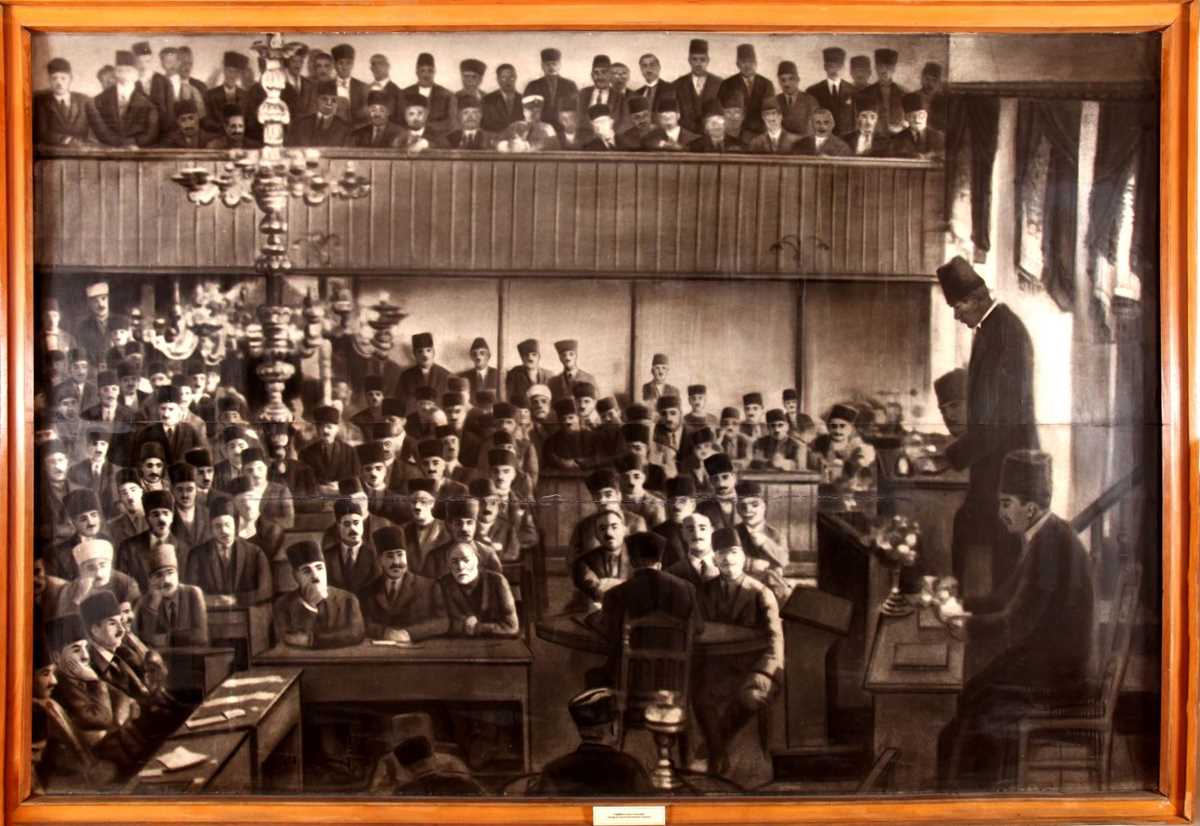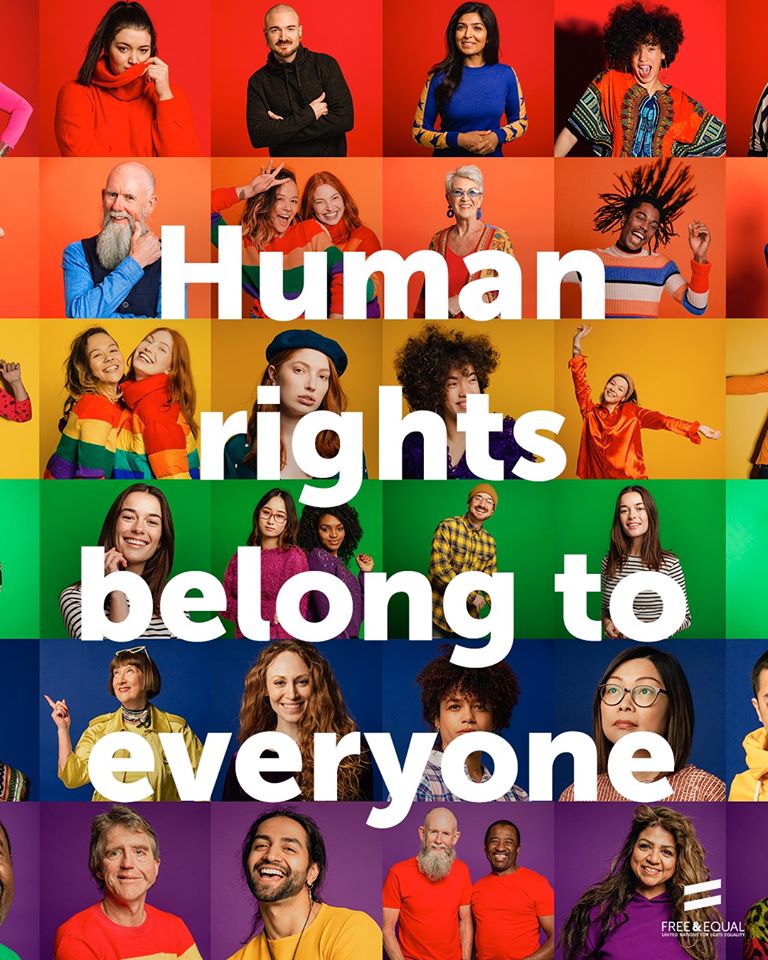
Since the 1990s, legislation of memory laws has been an ongoing trend in Europe. Although prevention of the denial of the Jewish Holocaust -viewed as one of the chief reflection of anti-Semitism- was the initial motive of the legislation of memory laws, the scope of the memory laws exceeds the denial of the Jewish Holocaust. In their current state, to speak generically, due to their indefinite philosophical foundation and the resultant imprecise wording, memory laws remain immature and unsettled.
The latest case connected to the memory laws that was eventually brought to the European Court of Human Rights (ECHR) is the Perinçek v. Switzerland case.[1] In addition, this case is the first “genocide denial” case before the ECHR other than those on the denial of the Jewish Holocaust. By extension, the Perinçek v. Switzerland case is the first lawsuit on the “denial” of a “genocide” that has not been established by a valid court judgement. This makes the case more interesting and important for displaying the philosophical, legal and political complications of the memory laws with respect to the subtle relationship between freedom of expression and what can broadly be called hate-speech, and correct boundaries on the freedom of expression.
In its verdict on 17 December 2013, the ECHR stated that only Luxembourg and Spain criminalize “the denial of crimes of genocide in their legislation, generically and without limiting themselves to specific historic episodes.”[2] However, the verdict adds that the Spanish Constitutional Court later on ruled that “simple denial of a genocide crime was not a direct incitement for violence and the simple dissemination of conclusions regarding the existence or non-existence of specific facts, without making a value judgment on them or on their illegal nature, was protected by scientific freedom”.[3]
Because the Spanish criminal code was one of the references of the ECHR verdict on 17 December 2013, this article aims to review the legislation of genocide denial laws, the debates these laws initiated and the current legal situation in Spain in order to explore the complexities of the memory laws that are still yet to be settled on solid philosophical ground.
The Denial of Genocide in Spain: Legal Situation
In 1971, the following Article 607 on the crime of genocide was introduced to the Spanish Criminal Code. It was amended in 2007. In its original version, Article 607 read as follows[4]:
1. Those who, with the intention to total or partially destroy a national, ethnic, racial or religious group, perpetrate the following acts, will be punished:
1) With the prison sentence of fifteen to twenty years, if they killed to some of its members.
If the fact two or more aggravating circumstances concurred in, the greater punishment in degree will prevail.
2) With the prison of fifteen to twenty years, if they sexually attacked to some of members [of the group] or produced some of the injuries anticipated in article 149.
3) With prison sentence of eight to fifteen years, if they subjected the group or anyone of its individuals to conditions of existence that put their lives in danger or seriously disturbed their health, or when they produced some to them of the injuries anticipated in article 150.
4) With the same punishment, if they carried out [unavoidable] displacements of the group or their members, they adopted any measurement that tend to prevent their sort of life or reproduction, or transferred by force individuals from a group to another one.
5) With imprisonment of four to eight years, if they produced any other injury different from the ones indicated in numbers 2) and 3) of this section.
2. The diffusion by any means of ideas or doctrines that deny or justify the crimes (tipificados) in the previous section of this article, or tries the rehabilitation of regimes or institutions which they protect generating practices of such, will be punished with a prison sentence of one to two years.
The Article 607 is divided into two sections. The first section (Art. 607.1) establishes the punishment of the crime of destroying a national, ethnic, racial or religious group or part of it with up to twenty years prison. The second section (Art. 607.2) specifies that those who are found guilty of spreading ideas justifying the destruction of the protected groups or of attempting to reinstate regimes or institutions which carried out such policies and/or bore relevant ideologies are to be punished with a prison sentence of one to two years. In its original form, Art. 607.2 also criminalized the denial of such events that took place in the past. However, it was amended in November 2007 after the Constitutional Court deemed the criminalization of denial of past events unconstitutional for violating the right to freedom of speech[5].
In 1998, neo-Nazi advocate and book-store owner Pedro Varela Geis was sentenced under Art. 607.2 for the denial and justification of genocide -namely, the Jewish Holocaust- and under Art. 510.1[6] for inciting racial discrimination, hatred and violence, all of that through organizing meetings and conferences in his book-store and the sale of books containing these ideas. The defendant appealed to the provincial court of Barcelona arguing that the sentence had violated his freedom of expression, which is one of the fundamental rights guaranteed by the Spanish Constitution. His appeal was then transferred to the Spanish Constitutional Court. The Spanish Constitutional Court took the case and ruled in favour of the defendant, stating that the criminalization of denial violated the right to freedom of expression granted in the Constitution and that Art. 607.2 should be modified.
In the merits of the judgement, the [Constitutional] Court clarified the Spanish constitutional system, which is based on the broadest assurance of the fundamental rights, and distinguished it from the militant democracies. According to the Court, the value of pluralism and the necessity of the free exchange of ideas as the cornerstone of representative democratic system prevent any activity of the public powers aiming to “control, select, or seriously determine the mere dissemination of ideas or doctrines”. Thus, the freedom of expression cannot be restricted on the grounds that it serves for the diffusion of ideas or opinions contrary to the Constitution unless these effectively harm the rights of constitutional relevance[7].
After the amendment of Article 607.2 in 2007 that eliminated the word “deny”, the defendant was finally convicted in March 2008 for justifying the genocide, but not for its denial.[8]
It is important to note that in its 2007 ruling, the Spanish Constitutional Court distinguished between the concepts of “denial” and “justification”. The Court defined denial as “the mere expression of a point of view on specific acts, sustaining that they either did not occur or were not perpetrated in a manner which could categorize them as genocide”, whereas it established that justification “does not imply total denial of the existence of the specific crime of genocide, but relativizes it or denies its unlawfulness, based on certain identification with the authors”[9]. Two years later, in 2010, a 23-year-old neo-Nazi activist was sentenced to a two-year prison term for spreading Nazi propaganda on-line and justifying the Jewish Holocaust[10]. Again, the charge was justification of genocide, not its denial.[11] In sum, at present, denial of genocide as an expression of an opinion does not constitute a criminal offence in Spain.
Legal Controversies in Spain with Respect to Genocide Denial as a Punishable Crime
The question of whether apología (roughly translated as justification, advocacy, glorification, apology or excuse) of a crime constitutes a crime in itself has traditionally been a hotly disputed matter in Spain. Although apología can imply the praise of a crime, criminalizing it can contradict with the right to free speech, which is considered a fundamental right by the Spanish Constitution. After a long debate, the matter was settled in 1995 in the Article 18.1 of the Spanish Criminal Code[12]. It states that apología is “the exposure, before a group of people or through any means of dissemination, of ideas or doctrines that praise the crime or glorify (enaltezcan) its perpetrator”. However, the article points out that it will only constitute a criminal offence “as a form of provocation and if, because of its nature and circumstances, it represents a direct incitement to commit a crime”[13]. Being a “form of provocation” is a requirement for apología to be considered deserving of legal punishment according to Article 18.1. Article 607.2 lacked this requirement, contradicting Article 18.1, and this was one of the reasons prompting the 2007 modification.
In the first sentence against the neo-Nazi book-store owner Pedro Varela in 1998 for denying and justifying genocide, the judge excluded the need for a “provocative element” by considering that Varela’s actions constituted an “abstract danger” for generating a climate of violence and hostility that could turn into actual violence or discrimination. This is what, according to the judge, justified the punishment even though it interferes with the defendant’s right to exercise his freedom of expression. The judge declared that the human rights of the social groups that could be threatened by the defendant’s actions are above any individual right, including freedom of expression[14].
María Lidia Suárez Espino, a Professor of Law at Madrid’s Universidad Carlos III, wrote a commentary on the 2007 Constitutional Court’s decision. She cited the following statement of the dissenting judge Ramón Rodríguez Arribas on the Constitutional Court’s decision:[15]
So-called denialism is in itself, to say the least, an outright disrespect towards the victims who suffered [genocide], and it is presented [as a demonstration of disrespect] by those who claim that, for example, the Holocaust did not exist and that it is only Zionist propaganda.
Suárez Espino argued that denying that a historically proved genocide took place in order to support totalitarian regimes harms the right to honor and dignity of the victims, and that this in itself is a reason enough to limit the individuals’ right to freedom of expression[16].
Law professor Ramos Vazquez, on the other hand, shared the opinion that fundamental rights may be restricted, but not all restrictions are legitimate according to the Constitution.[17] He reminded that the international legal instruments used for fighting discrimination and genocide are not as far-reaching as Art 607.2 of the Spanish Criminal Code, for example, the 1948 Genocide Convention Art. 3c limits itself to punishing the direct and public incitement to commit genocide. Ramos Vazquez indicated that although the European Council Framework Decision of April 2007 declares as punishable both the public incitement to violence and the denial and trivialization of genocide or crimes against humanity, it also states that the Member States can choose to punish only those actions that could give rise to disturbances in public order or be threatening, abusive or insulting.
Spanish judges Muñoz Conde and Cuerda Arnau found the original Article 607 problematic. [18] According to them, Article 607.2 does not mention the word apologia, its interpretation is too wide and in its original version it could be interpreted as unconstitutional for simply criminalizing opinions or points of view, as it was in 2007. Above all, the most important problem was the conflict between Art 607.2 and the fundamental rights granted in the Constitution. Also according to these two judges, Art 607.2 could be problematic even after its amendment. Among other problems, Muñoz Conde pointed out that in some instances historical events regarded as genocide in some parts of the world are not considered genocide by others.
A project on the reform of the Spanish Criminal Code is being discussed since 2014[19]. If approved, it would address the problems with Article 607.2 pointed out by the judges. As shall be mentioned below, the new wording would specify the denial of which particular crimes should be legally punishable: only those proven by the Nuremberg Trials, the International Criminal Court, or other International Tribunals.
Reactions of the Spanish Press and Civil Society to the Decriminalization of Genocide Denial
The November 2007 Constitutional Court decision to declare the denial of genocide unconstitutional was met with disappointment by Spanish anti-racist organizations and associations. Observatorio Antisemitismo, an observatory on anti-Semitism in Spain, expressed on its website its disagreement with the March 2008 sentence against Pedro Varela due to the fact that he was charged for justifying the Holocaust, but not for denying it. Observatorio Antisemitismo insisted that the denial of genocide should be a punishable criminal offence by claiming that denial is the first step in the discourse of hate and racism, and that denial does not happen completely in the abstract, but as a previous phase to hate discourse[20].
Movimiento contra la Intolerancia, a civil society movement fighting intolerance, racism and violence, issued two press releases on the Constitutional Court’s decision to decriminalize genocide denial that warned that this decision can turn Spain into a safe haven for neo-Nazi propagandists. They argued that because of the amendment of the Article 607.2 of the Criminal Code which allows denial -not the justification- of genocide, Spain may become the main online hosting center of Nazi ideology in Europe, and would also facilitate the spread of this ideology in Latin America. Movimiento contra la Intolerancia also argued that the Court’s decision would harm the victims of the Holocaust for a second time, as well as the collectives they belong to, by denying their suffering. This association pointed out the efforts to harmonize the legislation of all EU Member States on the matter of Holocaust denial and argued that the Constitutional Court’s decision would hinder this process[21]. Moreover, Movimiento contra la Intolerancia warned against the rise of neo-Nazism and other intolerant movements in Europe and noted that the Court’s decision coincided with the remembrance of the 1938 Kristallnacht, fearing that the decision would contribute to the spread of Nazi-like ideologies through Europe[22].
Discussions on this topic appear in the Spanish media from time to time. The Spanish media reported on the judicial process against Pedro Varela until the March 2008 final sentence, as well as on other processes against him after that date. Regarding the Constitutional Court’s decision on genocide denial, the Spanish media reported it and opinion pieces appeared in the press expressing concerns on the possibility of a spread of racist and xenophobic ideas because of the impunity of the crime of denial[23]. La Vanguardia, a newspaper from Barcelona, published an article in June 2011 describing the legal situation in Spain on the matter of genocide denial and hate speech in relation to the freedom of expression. It highlighted the difficulties in deciding what constitutes a punishable crime or not according to the Spanish legislation, and the perceived contradictions in some of the most recent rulings[24]. El Pais published an opinion piece by Ricardo Ruiz de la Serna[25] praising the project on reform of the Art 510 of the Spanish Criminal Code which aligns the Spanish legislation with that of the neighboring countries (i.e. the European Union), although he ended the piece by stating that he would like to discuss other solutions like administrative penalties or allowing for an unrestricted free exchange of ideas with those who defend them. Internationally, German newspaper Die Welt informed on the Spanish Constitutional Court’s sentence and compared it to the German laws on the matter of Holocaust denial[26].
Project on the Reform of the Spanish Criminal Code
Since 2014, a project on the reform of the Spanish Criminal Code is being considered. If approved, the above mentioned articles 510 and 607 of the Criminal Code would be unified and adapted to the Constitutional Court’s decision in 2007 which established that the denial of genocide does not constitute a crime. If that reform is done, the amended Article 510 would criminalize the denial, justification or trivialization of crimes established by the Nuremberg Trials, by the International Criminal Court or by other International Tribunals. Thus, the new article would create a distinction between those crimes established by valid international tribunals and those which are not. A prison sentence from six months to two years would be applied to
whoever denies, justifies or gravely trivializes the crime of genocide, or crimes against humanity, or crimes against people and goods protected in case of armed conflict committed against a group or part of a group on the grounds of racism, anti-Semitism or of any other kind related to ideology, religion or beliefs, family status, or on the grounds of belonging to an ethnicity or race, national background, gender, sexual orientation, illness or disability, […] and that have been proved by the Nuremberg Trials, by the International Criminal Court or by other International Tribunals, when by doing so a climate of violence, hostility, hate or discrimination is promoted or encouraged[27].
Conclusion
The Spanish case reveals that there is still time for the settlement of the memory laws on definite philosophical and political grounds. The advent of new cases that will expose the flaws of the memory laws will facilitate this process. Perincek v. Switzerland case is important also for this reason.
The amendments in the Spanish Criminal Code and the debates that they initiated display two important points that should be taken into consideration as to the legislation of memory laws. First, as the Spanish law does, the difference between interpretation of a past event and/or its legal characterization and justification of a crime shall be boldly highlighted. In other words, rejection of a particular interpretation of an event and/or offering another interpretation per se shall not be confused with the justification of hatred, violence or discrimination. Whereas the latter must surely be punished, the former, as a freedom of expression and a right to reject commonly held beliefs, shall not only be respected, but also be protected.
Second, attention must be paid to the fact that, in Spain, those who defended the criminalization of denial of past tragedies formulate their opposition to the amendment of the law with reference to the Jewish Holocaust. Jewish Holocaust is a historical fact and a crime that is established by a valid court judgement. Therefore, actors who oppose the denial of past tragedies, indeed, oppose the denial of the legally established crimes. Likewise, the would-be amended Article 510 foresees criminalization of justification, trivialization and denial of crimes established by the Nuremberg Trials, by the International Criminal Court or by other International Tribunals. In other words, this amendment seeks justification, trivialization and denial of crimes established by valid court judgements, not justification, trivialization and denial of historical events that are widely believed as crimes. This distinction must also be kept in mind, since only the judgements of the International Criminal Court, International Court of Justice or ad hoc tribunals can establish a historical event as a crime, not widely held beliefs.
[1] For Perincek v. Switzerland case see, Review of Armenian Studies, vol. 29, 2014, Special Issue on ECHR Perincek v. Switzerland Case; Cagatay Yıldırım, Memory Laws and Freedom of Speech in Europe: Analysis of Perincek v. Switzerland Case, Review of Armenian Studies, vol. 30, 2014, pp. 133-185,. Turgut Kerem Tuncel, A Look at the Perinçek v. Switzerland Case: Examination of a Lawsuit to Understand the Current State of the Armenian-Turkish Dispute and Prospective Developments, Review of Armenian Studies, vol. 31, 2015, pp.293-324.
[2] European Court of Human Rights, Matter of Perinçek v. Switzerland, Application no. 27510/08, 17 December 2013, at para 30.
[3] Ibid. at para. 121.
[4] Codigo Penal, Libro II Titulo XXIV - Delitos contra la Comunidad Internacional. Capitulo II, Delitos de genocidio - Artículo 607. English translation from preventgenocide.org.
[5] José Antonio Ramos Vázquez, “La declaración de inconstitucionalidad del delito de «negacionismo» (art. 607.2 del Código Penal)”, Revista Penal, no. 23, January 2009. http://www.uhu.es/revistapenal/index.php/penal/article/view/383/374
[6] Codigo Penal, Titulo XXI - Delitos contra la Constitucion.. Capitulo IV, De los delitos relativos al ejercicio de los derechos fundamentales y libertades publicas - Artículo 510.
1. Those who induce to discrimination, hate or violence against groups or associations for racist, anti-Semite or other motives related to ideology, religion or beliefs, family status, belonging to an ethnicity or race, national origin, gender, sexual orientation, illness or disability, will be punished a prison sentence of one to three years and a fine from six to twelve months.
2. The same penalty will be applied to those who, being aware of their falsehood or with a reckless disregard for the truth, spread injurious information about groups or associations in relation to their ideology, religion or beliefs, belonging to an ethnicity or race, national origin, gender, sexual orientation, illness or disability.
Original text:
1. Los que provocaren a la discriminación, al odio o a la violencia contra grupos o asociaciones, por motivos racistas, antisemitas u otros referentes a la ideología, religión o creencias, situación familiar, la pertenencia de sus miembros a una etnia o raza, su origen nacional, su sexo, orientación sexual, enfermedad o minusvalía, serán castigados con la pena de prisión de uno a tres años y multa de seis a doce meses.
2. Serán castigados con la misma pena los que, con conocimiento de su falsedad o temerario desprecio hacia la verdad, difundieren informaciones injuriosas sobre grupos o asociaciones en relación a su ideología, religión o creencias, la pertenencia de sus miembros a una etnia o raza, su origen nacional, su sexo, orientación sexual, enfermedad o minusvalía.
[7] Çağatay Yıldırım, “Memory Laws and Freedom of Speech in Europe: Analysis of Perinçek v. Switzerland Case, Review of Armenian Studies, vol. 30, 2014, p. 143.
[8] http://observatorioantisemitismo.fcje.org/?page_id=88
[9] Spanish Constitutional Court’s Judgment, 7 Nov. 2007, no. 235/2007, para. 9, qtd. in Çağatay Yıldırım, op. cit.. p. 144.
[10] http://elpais.com/elpais/2010/06/16/actualidad/1276676230_850215.html
[11] This case was peculiar in that it was the first case in Spain that resulted in someone’s conviction for spreading this kind of ideas over the Internet.
[12] Ley Orgánica 10/1995, de 23 de noviembre, del Código Penal. Articulo 18.1. (available online: http://noticias.juridicas.com/base_datos/Penal/lo10-1995.l1t1.html)
For the purpose of this Code, apologia is the exposure, before a group of people or through any means of dissemination, of ideas or doctrines that praise the crime or glorify [enaltezcan] its perpetrator. Apologia shall be criminalized only as a form of provocation and if, because of its nature and circumstances, it represents a direct incitement to commit a crime.
Original text:
Es apología, a los efectos de este Código, la exposición, ante una concurrencia de personas o por cualquier medio de difusión, de ideas o doctrinas que ensalcen el crimen o enaltezcan a su autor. La apología sólo será delictiva como forma de provocación y si por su naturaleza y circunstancias constituye una incitación directa a cometer un delito.
[13] Art. 18.1 of the Spanish Criminal Code, qtd. in José Antonio Ramos Vazquez 2009, op. cit., p. 121.
[14] José Antonio Ramos Vazquez, 2009, op. cit., p. 125.
[15] María Lidia Suárez Espino, “Comentario a la STC 235/2007, de 7 de noviembre, por la que se declara la inconstitucionalidad del delito de negación de genocidio”, Revista InDret, February 2008, p. 6, http://www.indret.com/pdf/524_es.pdf.
[16] Ibid.
[17] José Antonio Ramos Vazquez, 2009, op. cit, p. 126.
[18] Ibid, p. 123, 124.
[19] Project on the reform of the Spanish Criminal Code, Article 510.2 C qtd. in http://www.informeraxen.es/el-nuevo-codigo-penal-convierte-en-delito-la-difusion-de-mein-kampf/
[20] http://observatorioantisemitismo.fcje.org/?page_id=88
[21] “El TC declara inconstitucional que sea delito negar o justificar el genocidio”, http://www.movimientocontralaintolerancia.com/html/Admin/verNoticia.asp?cod=1143&esBusq=True
[22] “MCI advierte del peligro de convertir a España en un refugio para la propaganda nazi”, http://www.movimientocontralaintolerancia.com/html/Admin/verNoticia.asp?cod=1142&esBusq=True
[23] Xavier Rius Sant, “Odio racial con impunidad”, El Pais, March 8, 2008 http://elpais.com/diario/2008/03/08/catalunya/1204942039_850215.html
[24] Santiago Tarin, “El limite legal de la xenofobia”, La Vanguardia, June 30, 2011, p. 24.
[25] Ricardo Ruiz de la Serna, “Castigar el negacionismo”, El Pais, February 21, 2014. http://elpais.com/elpais/2014/02/03/opinion/1391429440_767685.html
[26] “Holocaust-Leugnung nicht mehr strafbar”, Die Welt, November 9, 2007. http://www.welt.de/politik/article1347460/Holocaust-Leugnung-nicht-mehr-strafbar.html
[27] Project on the reform of the Spanish Criminal Code, Article 510.2 C qtd. in http://www.informeraxen.es/el-nuevo-codigo-penal-convierte-en-delito-la-difusion-de-mein-kampf/
© 2009-2025 Center for Eurasian Studies (AVİM) All Rights Reserved
No comments yet.
-
 COVID-19 AND CORONA BONDS HAVE UNMASKED THE FRAGILITY OF THE EU
COVID-19 AND CORONA BONDS HAVE UNMASKED THE FRAGILITY OF THE EU
Teoman Ertuğrul TULUN 22.04.2020 -
 REMEMBERING AND REMINDING THE SIGNIFICANCE, MEANING, AND PROVISIONS OF THE LAUSANNE PEACE TREATY IN ITS CENTENARY
REMEMBERING AND REMINDING THE SIGNIFICANCE, MEANING, AND PROVISIONS OF THE LAUSANNE PEACE TREATY IN ITS CENTENARY
Teoman Ertuğrul TULUN 11.05.2023 -
 THE EUROPEAN PARLIAMENT’S RESOLUTION REGARDING THE 2014 PROGRESS REPORT ON TURKEY
THE EUROPEAN PARLIAMENT’S RESOLUTION REGARDING THE 2014 PROGRESS REPORT ON TURKEY
Ali Murat TAŞKENT 17.06.2015 -
D.L. PHILLIPS’S DIPLOMATIC HISTORY OF THE TURKEY-ARMENIA PROTOCOLS 2
Ömer Engin LÜTEM 28.03.2013 -
 EU'S FAILURE TO FULFILL ITS HUMAN RIGHTS RESPONSIBILITIES: STATEMENT BY THE EU SPECIAL REPRESENTATIVE FOR HUMAN RIGHTS AT THE UN
EU'S FAILURE TO FULFILL ITS HUMAN RIGHTS RESPONSIBILITIES: STATEMENT BY THE EU SPECIAL REPRESENTATIVE FOR HUMAN RIGHTS AT THE UN
Teoman Ertuğrul TULUN 18.10.2022
-
25.01.2016
THE ARMENIAN QUESTION - BASIC KNOWLEDGE AND DOCUMENTATION -
12.06.2024
THE TRUTH WILL OUT -
27.03.2023
RADİKAL ERMENİ UNSURLARCA GERÇEKLEŞTİRİLEN MEZALİMLER VE VANDALİZM -
17.03.2023
PATRIOTISM PERVERTED -
23.02.2023
MEN ARE LIKE THAT -
03.02.2023
BAKÜ-TİFLİS-CEYHAN BORU HATTININ YAŞANAN TARİHİ -
16.12.2022
INTERNATIONAL SCHOLARS ON THE EVENTS OF 1915 -
07.12.2022
FAKE PHOTOS AND THE ARMENIAN PROPAGANDA -
07.12.2022
ERMENİ PROPAGANDASI VE SAHTE RESİMLER -
01.01.2022
A Letter From Japan - Strategically Mum: The Silence of the Armenians -
01.01.2022
Japonya'dan Bir Mektup - Stratejik Suskunluk: Ermenilerin Sessizliği -
03.06.2020
Anastas Mikoyan: Confessions of an Armenian Bolshevik -
08.04.2020
Sovyet Sonrası Ukrayna’da Devlet, Toplum ve Siyaset - Değişen Dinamikler, Dönüşen Kimlikler -
12.06.2018
Ermeni Sorunuyla İlgili İngiliz Belgeleri (1912-1923) - British Documents on Armenian Question (1912-1923) -
02.12.2016
Turkish-Russian Academics: A Historical Study on the Caucasus -
01.07.2016
Gürcistan'daki Müslüman Topluluklar: Azınlık Hakları, Kimlik, Siyaset -
10.03.2016
Armenian Diaspora: Diaspora, State and the Imagination of the Republic of Armenia -
24.01.2016
ERMENİ SORUNU - TEMEL BİLGİ VE BELGELER (2. BASKI)
-
AVİM Conference Hall 24.01.2023
CONFERENCE TITLED “HUNGARY’S PERSPECTIVES ON THE TURKIC WORLD"









